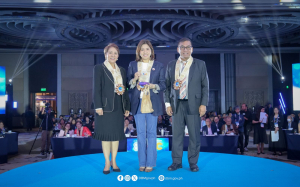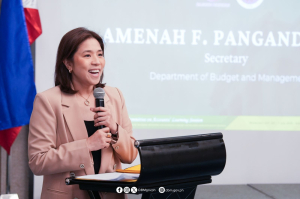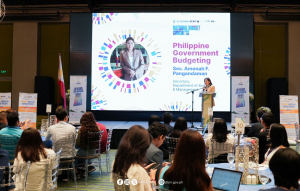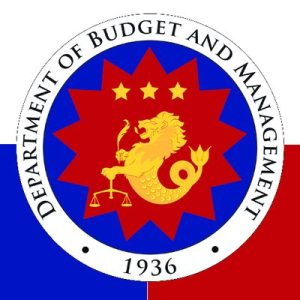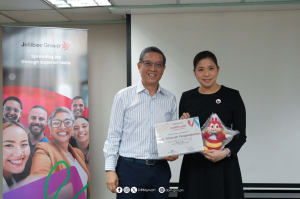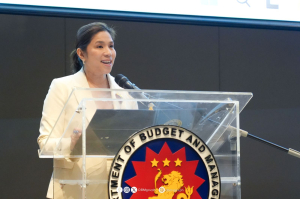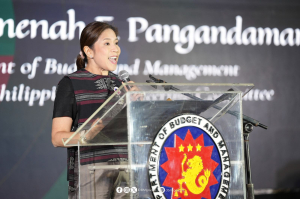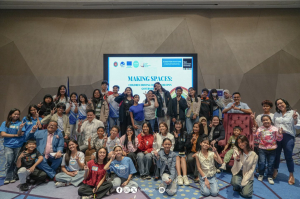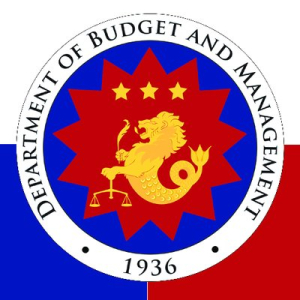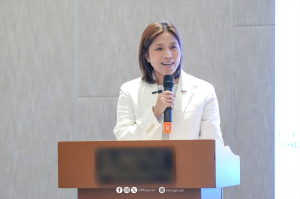
- Details

To Honorable Solomon R. Chungalao as represented by Mr. Peer Sean Balao, District Representative of Ifugao; Honorable Jerry U. Dalipog, Governor of Ifugao; the Board Members of Ifugao province; mayors of Ifugao; President Eva Marie Codamon-Dugyon of the Ifugao State University; officials of the Administrative Council and Academic Council; friends from the academe, staff, personnel, parents, and the graduating students, naimbag nga aldaw.
Assalamu alaikum wa Raḥmatullahi wa Barakatuh.
Before anything else, I would like to congratulate all personnel of IFSU, both teaching and non-teaching, for paving the way for these students to reach this milestone in their academic life. Nais ko rin pong magbigay-pugay sa mga magulang, kapatid, at kaibigan na kasama nila sa pagharap sa mga pagsubok sa kanilang pag-aaral at sa buhay.
Of course, ultimately, I want to congratulate you, dear graduates of this premiere state-operated institution of higher learning in the Cordillera Administrative Region. Regardless if you are graduating with flying colors, pumasang-awa, o na-delay dahil sa thesis, what matters is that YOU ARE HERE. You rose above life's challenges—in your families, relationships, classrooms, and even jobs, among others. Smile. Savor this moment. Give yourself a pat on the back. Be proud of this achievement.
Noong nakaraang linggo, ipinagdiwang natin ang ika-isang daan at dalawampu’t limang taon ng Kalayaan ng ating bansa. Alam nating lahat kung ano ang inialay at isinakripisyo ng mga nauna sa atin, lalo na ng ating mga bayani, upang makamit ang kalayaang tinatamasa natin ngayon.
At kagaya ng kasaysayan ng bansa, ang kasaysayan ng IFSU ay isa ring kwento ng pag-aalay, sakripisyo, at tagumpay. From being the Nayon Settlement Farm School (NSFS) led by American educators, then being closed down during the World War II, IFSU was continuously built and improved as a school of agriculture until it became the Ifugao State University of today.
Ngunit ang pagkamit ng kalayaan ay simula lamang. Sa atin nakasalalay ngayon ang pag-alaga sa kalayaan na ito at kung ano ang patutunguhan nito ngayon. Ito ba ay kalayaan upang piliin ang sarili at kalimutan ang kapwa? O ito ba ay kalaayan upang lalong paigtingin ang pagkakaisa at pagmamahalan upang ang bawat Pilipino ay mamuhay nang panatag at matiwasay?
Kaya napakagandang pag-usapan ang tema ngayong araw: “Empowered Leaders: Pioneering Innovation, Promoting Internationalization, Inspiring Excellence, and Securing Sustainable Development.”
With the bountiful blessings that the Cordillera offers, the indigenous knowledge and teachings your communities have given, the quality education you received from this esteemed institution, and the love for the environment and the people that you possess, you are indeed empowered to lead and serve the people.
At kagaya ng kalayaan, kailangan din nating timbangin kung para saan at para kanino nga ba ang ating talino at kakayahan. Let us ask ourselves: how can we support our fellowmen, our communities, and our country?
First, by pioneering innovation. With the natural wealth of the Cordillera, coupled with your expertise in agriculture, home, and information technology, among others, you are empowered to innovate and offer creative ways to achieve our socioeconomic goals. I was very impressed to learn that IFSU ranked high in the Global Top 100 Innovative Universities last May—a testament to your knowledge and expertise to bring about positive change.
Second, promoting internationalization. As a Maranao and member of the indigenous community, I understand what it is like to be part of a minority. But, please know that it is okay to be outnumbered and that it is wonderful to be different. This gives us more reasons to go out there, show who we are, share our culture, and build bridges with other people in the world. I commend IFSU for establishing opportunities for international educational exchanges and for pursuing research works that contribute to the international wealth of knowledge.
Third, inspiring excellence. As always, give your best in whatever job you commit to do—whether you will be a teacher, a nurse, a social worker, an engineer, a welder, or a designer—and uphold integrity in the process. By being upright, you inspire others to do the same. Tandaan na ang layunin natin ay itaas ang antas ng karunungan at kamalayan ng bawat Pilipino upang lahat tayo ay magkaroon ng pagkakataong mag-isip, magtanong, at maghain ng solusyon sa mga problemang kinahaharap ng bansa. True excellence helps others become excellent.
And fourth, securing sustainable development. Certainly, you have a deep appreciation for nature being here in Ifugao where the beauty of nature is astounding. But you are also at the forefront of agriculture and forestry development through your education. Use this appreciation to fuel you to take action both in agricultural development and environmental protection and contribute to achieving sustainability which is at the heart of our Our Agenda for Prosperity.
Our country needs you. As such, I genuinely hope that after leaving the halls of your beloved university, you will take action and be part of social and economic transformation where no Filipino will be left behind.
On our end at the Department of Budget and Management, we carefully crafted a national budget geared towards achieving social and economic transformation—one that will not just address the immediate and pressing concerns of our citizens but will also make our growth sustainable for future generations.
To give you an overview, the Fiscal Year 2023 National Budget of the Philippines amounts to Php 5.268 trillion, and we allotted 38 percent of this for our Social Services sector. This is in line with our commitment to investing in our people through major social and human capital development expenditures.
As always, we have provided the highest allocation to the Education, Culture, and Manpower Development Sector amounting to Php 909.1 billion. This is consistent with the Constitutional mandate to assign the highest budgetary priority to education but more than this, it also reflects the Administration’s commitment to empowering you, our future leaders and nation-builders. As PBBM said in his first State of the Nation Address, “Education is the only legacy we can leave our children that will never go to waste. So we will not hold back on investing in our education.”
Through revitalized education, we aspire to provide every Filipino with a fighting chance to manage life’s uncertainties so they can choose to achieve their full potential—just like you, our dear IFSU graduates.
Sa inyong lahat na tatanggap ng inyong mga diploma sa araw na ito, napaka-galing ninyo! Tandaan ninyo parati na naniniwala kami sa inyo at kasama ninyo kami.
Kaya ngayong nakamit na ninyo ang susi para sa magandang kinabukasan, siguruhin ninyo na tuluyan ninyo nang bubuksan ang pinto para sa magandang kinabukasan ng buong bayan.
Again, you are empowered leaders. Embrace this responsibility and opportunity as we stand together for social justice, work towards economic equity, and concretize genuine prosperity for every Filipino.
Congratulations again, IFSU graduates! Mabuhay ang kabataang Ifugao! Mabuhay ang Ifugao State University! Mabuhay ang IFSU Graduating Class of 2023! Agymanak unay kadakayo amin.
Wabillahi Tawfiq Wal Hidaya, Wasalamu alaikum wa rahmatullahi wa Barakatuhu.
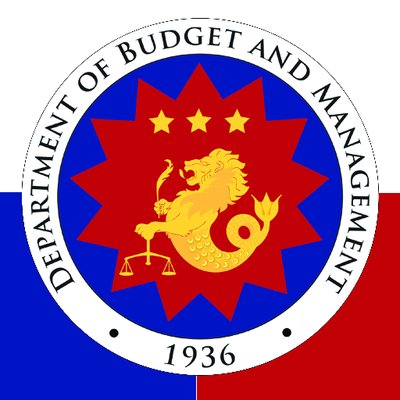
- Details
Magandang araw po. My heartfelt greetings and warmest welcome to our 2023 National Capital Region Dagyaw participants.
Assalamu alaikum wa Raḥmatullahi wa Barakatuh.
More than being the theme of this event, “Building a Better Government-Citizen Engagement through Quality Public Participation and Dialogue” is the very essence of Dagyaw town hall meetings.
As you may already know, Dagyaw is a Hiligaynon term for “Bayanihan,” or being together and working toward a common goal. And so today, we bring together and mobilize our stakeholders to promote and disseminate information on open government and participatory governance, especially as we discuss “Biyaheng Metro: Makabago at Epektibong Transportasyon para sa Pilipino.”
Transport is a key sector in the Philippine economy, linking population and economic centers across our archipelagic country. It is, literally and figuratively, our road and bridge toward economic transformation that is inclusive and sustainable for all generations.
Quoting President Ferdinand R. Marcos Jr., in his speech during the launch of the Metro Manila Subway Project’s tunnel boring machine on January 9, 2023, "Having an effective and efficient transportation system will have multiplier effects on employment, the economy, and our society, for it will bring comfort, convenience, and an easier life for all.”
As such, improved transportation is part of our 8-point Socioeconomic Agenda and anchored on the Philippine Development Plan (PDP) 2023 to 2028 to expand and upgrade infrastructure “toward a future where movement of people and goods is safely and efficiently facilitated by adequate and accessible transportation.”
And recognizing that infrastructure development is the backbone of the economy, this Administration continues to expand the Build, Better, More Program with Php 1.3 trillion for 2023, equivalent to 5.5 percent of GDP.
In fact, the Department of Transportation (DOTr) was allocated Php 106.0 billion this year, Php 1.13 billion of which is intended for its Rail Transport Program, Php 430 million for the Land Public Transportation Program, and Php 1.29 billion for PUV Service Contracting.
Ngayong taon ay naglaan din tayo ng Php 891.02 million para sa Systems and Facilities Improvement Rehabilitation and Modernization Program ng Light Rail Transit Authority; at Php 404.00 million naman para po sa Railway System Maintenance ng Philippine National Railways o PNR.
Some Php 705 million was allocated for active transport, bike share system, and safe pathways program in metropolitan areas, highly-urbanized cities, and independent component cities to ensure inclusive transport and sustainable development.
We acknowledge that achieving improved transportation toward a better quality of life for all Filipinos calls for a multisectoral approach. And providing the necessary budgetary support to the transport sector is just one aspect of the solution.
And so, today is an opportune time to voice your concerns, engage in dialogues with the National Government, and enrich our democratic spaces—taking advantage of the opportunity provided to you by Dagyaw town hall meetings.
Rest assured that, together with the Department of the Interior and Local Government and the rest of the Philippine government, we will listen and open more avenues for conversation, so that with you, we can steer the country toward our Agenda for Prosperity—one that is felt by every individual, family, and entity in the country.
Maraming salamat po at mabuhay po tayong lahat!
Wabillahi Tawfiq Wal Hidaya, Wasalamu alaikum wa rahmatullahi wa Barakatuhu.

- Details
A pleasant morning to all my fellow advocates of transparency and freedom of information from all over the world. To the commissioners, ombudspersons, and leaders who dedicate themselves to this noble pursuit of providing people with truth, facts, and accurate information amidst the post-truth era, welcome and thank you.
Assalamu alaikum wa Raḥmatullahi wa Barakatuh.
I mentioned post-truth because I believe that this concept has become particularly relevant in these times. According to a publication from the Massachusetts Institute of Technology, “Post-Truth” by Lee Mcintyre, post-truth is a “growing international trend where some feel emboldened to try to bend reality to fit their opinions.”[1]
This is a precarious phenomenon with several negative implications. First, it clouds people’s view of reality, including the reality of social issues that need to be addressed. Second, it perpetuates a culture of denial, impeding growth both at the individual and collective levels. Third, it enables institutions and personalities with hidden agendas to prey on the public by spreading false information.
As such, it is high time for us to take a stand and inculcate a culture of truth and transparency in our systems and communities. Thus, I would like to commend the information commissioners who crafted the theme of today’s event: “Bridging Information Across Nations: Concretizing the Global Role of Access to Information for Democratic Preservation, Inclusivity, and Development.”
In line with this, allow me to share with you the Department of Budget and Management’s (DBM) accomplishments and current efforts to enhance transparency and access to information in the Philippines.
As one of the founding members of the Open Government Partnership, we are proud to share how the Freedom of Information (FOI) Program promotes an open government and strengthens the people’s right to information as enshrined in the Constitution. This effort has been localized by several cities and municipalities as they established FOI desks, appointed information officers, and developed online platforms to process information requests.
The implementation of the FOI Program and its localization efforts is a huge part of the Philippine-Open Government Partnership’s (PH-OGP) success. We are currently pushing for the institutionalization of the PH-OGP through an Executive Order to improve transparency and citizen participation in policy-making across all government agencies. We are also gearing up for the co-creation of our 6th National Action Plan.
And we are carrying out more initiatives in line with our mission in the DBM to allocate and use public funds not only equitably and prudently, but with transparency and accountability.
We have our Fiscal Openness (FO) Working Group which leads and monitors the country’s performance in the Open Budget Survey (OBS) conducted by the International Budget Partnership. We continue the timely and online publication of key budget documents, which include the People’s Budget series, to support informed public debate on the national budget. To date, we have maintained our lead in the Southeast Asian region in providing mechanisms that allow the public to participate in the budget process.
Further, we have operationalized the DBM Civil Society Organizations Desk which responds to CSOs’ requests for information and addresses their budget-related queries. And just recently, the Global Initiative for Fiscal Transparency (GIFT) lauded the DBM, a founding member of GIFT, for remaining a prime example of fiscal transparency in Asia regardless of changes in administrations.
Moreover, we will continue to include in the 6th NAP the game-changing Project DIME or Digital Information for Monitoring and Evaluation. It is an initiative that utilizes Digital Data and Imaging Technologies to improve program implementation and promote participatory monitoring.
Aside from these commitments under the 6th NAP, the DBM will continue to prioritize funding for digital infrastructure under the proposed FY 2024 National Budget to ensure greater fiscal transparency and accountability. This expenditure direction is aligned with the strategies of the Administration’s Philippine Development Plan 2023 to 2028.
More good news: just this month, the President issued Executive Order No. 29 directing the full adoption of the Integrated Financial Management Information System (IFMIS) in government agencies to ensure the efficient delivery of quality services to the public.
This is a big stride towards bureaucratic efficiency through digitalization and soon, we hope to also pass the Progressive Budgeting for Better and Modernized Governance, or the PBBM Governance Bill. The Bill seeks to digitalize processes and transactions across all government offices and institutionalize key Public Financial Management (PFM) reforms such as the Cash Budgeting System.
In all these, our end goal is to advance freedom of information, good governance, and accountability. While we acknowledge that the road towards a truly transparent bureaucracy and genuine democracy is paved with challenges and gaps, we must also recognize that we have already achieved so much in terms of catalyzing and sustaining progress on open government reforms.
Thank you again for being with us and I look forward to hearing more success stories in our upcoming conferences. To all champions and advocates of access to information, let us build on our gains and continue working together as beacons of transparency and public participation. Let us maintain an open government and empower our people to be part of the solution while we combat global disinformation and misinformation.
Wabillahi Tawfiq Wal Hidaya, Wasalamu alaikum wa rahmatullahi wa Barakatuhu.
[1] Mcintyre, Lee. 2018. Post-truth. Cambridge: MIT Press.

- Details

To the Association of Local Budget Officers in Region III (ALBO III), Inc. headed by President Heriberto Tomas; my colleagues from the Department of Budget and Management who are also joining us in today’s event; our local budget officers and public financial management (PFM) practitioners; and all our participants, magandang araw po.
Assalamu alaikum wa Raḥmatullahi wa Barakatuh.
First, I thank ALBO III for inviting me to be your keynote speaker this morning. Earlier this month, I was also given the opportunity to speak at the General Assembly of the Regional Association of Local Budget Officers 12 in General Santos City. Mula Luzon hanggang Mindanao, ako po ay lubos na natutuwang makibahagi sa mga programa ng ating mga local budget officers because not only do I meet our dedicated public servants; I also get to witness first-hand the issues and concerns on the ground.
This week, we will present the Fiscal Year (FY) 2024 Proposed National Budget to the President and the Cabinet. Thus, your forum comes at a very opportune time. I trust that my colleagues from the Department will sufficiently answer your queries and concerns about preparing your budgets. For now, please allow me to share a few of our initiatives that we hope will assist you in performing your duties.
In anticipation of the challenges that our partners in the local governments will face in the implementation of the government’s budget and digitalization initiatives, the DBM has been continuously providing capacity building for our PFM practitioners across different regions, including the Bangsamoro Autonomous Region in Muslim Mindanao (BARMM).
The Department is also gearing up for the launch of its Digital Transformation Roadmap, which aims to promote data governance and digitalization in fiscal-related government processes. This roadmap has a dual transformation feature that will future-proof the entire bureaucracy by institutionalizing all the digital reforms spearheaded by the DBM.
In addition, we have enhanced the eBudget system for LGUs to strengthen the linkage between planning and budgeting and cover all facets of budgeting from the preparation to the accountability phase. Ito po ay maaari ninyo nang gamitin lalo na po sa paghahanda ng inyong annual budget at accountability reports. Last June 5, we implemented the merging of the eBudget system with the Online Submission of Budget Proposals which will facilitate easier data reconciliation, especially concerning the Classification of the Functions of Government, and the Expenditure Tagging for the Administration’s 8-Point Socioeconomic Agenda, as well as Infrastructure, Climate Change, and Regional Allocation.
We are also updating the Budget Operations Manual for LGUs, which provides an enhanced framework for strengthening policy-based budgeting by specifying how to harmonize the linkage among policymaking, planning, and budgeting. We hope to publish this by the second half of the year.
At the national level, we have also been proactively lobbying for and working with Congress toward the enactment of the Progressive Budgeting for Better and Modernized Governance or the PBBM Governance Bill, which will modernize our budgeting system, and resolve the fragmented PFM legal framework. The PBBM Governance Bill also aims to secure the institutionalization of key PFM reforms such as the Treasury Single Account, Accounting and Auditing Reforms, and the Integrated Financial Management Information System (IFMIS); strengthen the implementation of the Cash Budgeting System; and promote public participation in the budget process once enacted.
The good news is that we have already made a huge step in the right direction as President Ferdinand R. Marcos Jr. signed Executive Order No. 29, two weeks ago, directing the full adoption and implementation of IFMIS in government agencies and encouraging LGUs to follow suit. I hope that as we all use this, we achieve transparency and bureaucratic efficiency.
We also recognize that one of the most pressing concerns of our local governments is the implementation of the Supreme Court ruling on the Mandanas-Garcia case. Further, we are well aware that the differing levels of technical and financial capacities of LGUs affect the absorptive capacities of implementing such at the local level.
Hence, upon the President’s directive, the DBM, together with the Department of Finance, the Department of the Interior and Local Government, and the National Economic and Development Authority, is pursuing a review of the full devolution efforts to determine the extent and ways forward to assist LGUs in this endeavor. National Government Agencies shall also continue to provide capacity-building interventions appropriate and responsive to the development needs of local governments.
These are only a few of the initiatives of the Department to help our local governments, especially our local budget officers and PFM practitioners, in carrying out their mandate. Rest assured that, as we pursue these undertakings, we will continue to be your partner for inclusive development and support you in your efforts to achieve growth in your localities.
Likewise, we hope that you will also maintain your support for the DBM and join us in implementing reforms that improve not only our government systems but also our processes. I have said this before and will say this again—our Agenda for Prosperity will not be truly inclusive without our local governments.
Maraming salamat po. Mabuhay ang ALBO III!
Wabillahi Tawfiq Wal Hidaya, Wasalamu alaikum wa rahmatullahi wa Barakatuhu.
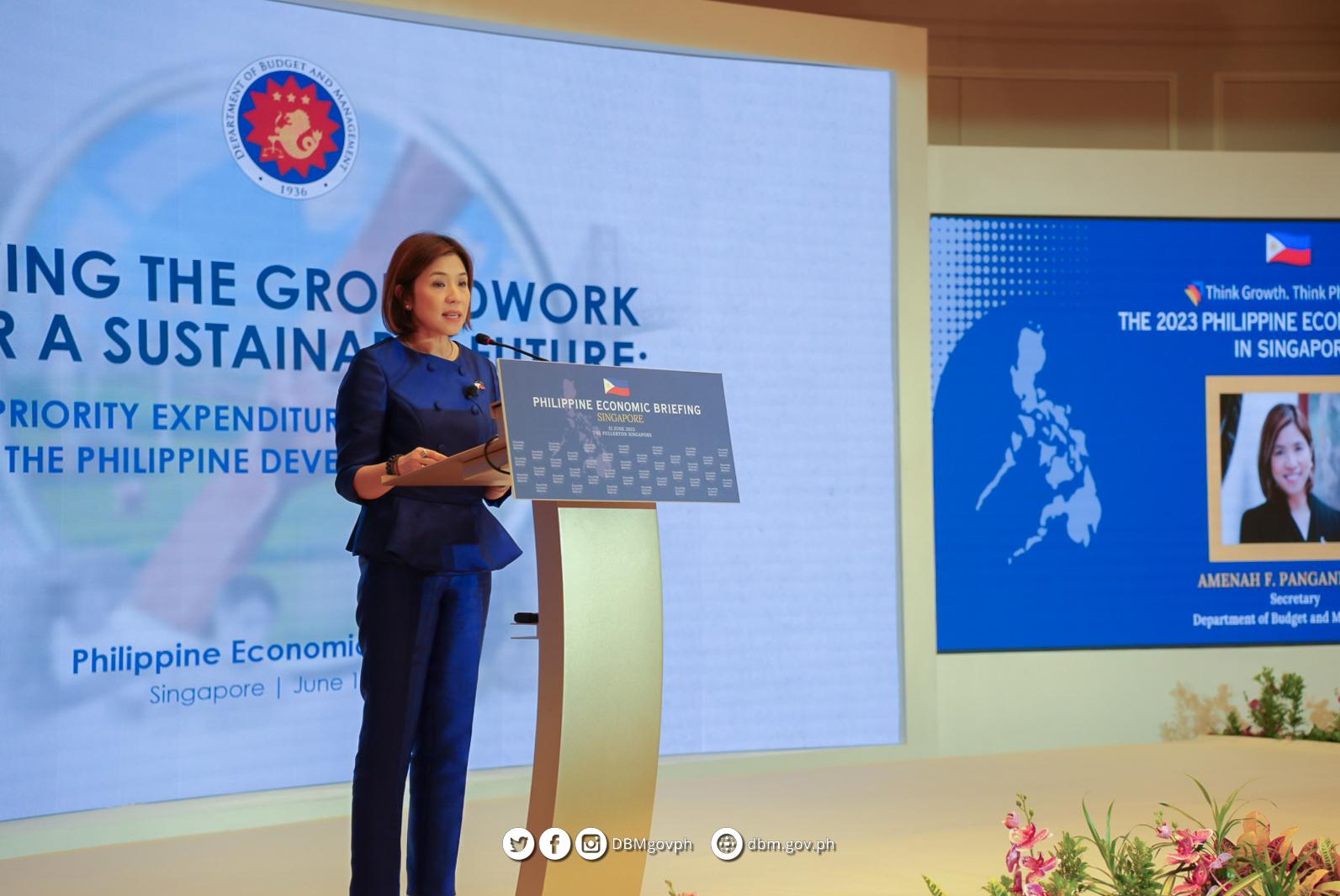
- Details

Your Excellency, Ambassador Medardo Macaraig, members of the economic team, ladies and gentlemen:
Assalamu alaikum wa Raḥmatullahi wa Barakatuh.
It's so wonderful to once again be back in Singapore!
If you will recall, this was where the very first international Philippine Economic Briefing under President Ferdinand R. Marcos Jr.—or PBBM as we fondly call him—was held in September of last year. And now, we are the first country to have a second economic briefing in Singapore, a true testament to the strong friendship of our nations.
First, I would like to thank the Philippine Embassy, DBS Bank Singapore, and our partners here for giving us this opportunity to once again share the latest developments on the country's economic performance and investment opportunities, and on our end at the Department of Budget and Management, to highlight our Priority Expenditures.
Today, we bring you good news from the Philippines.
We remain on track with our Agenda for Prosperity in spite of global headwinds and the challenges of economic recovery after the pandemic lockdowns.
This agenda is the Philippines’ economic transformation, bearing in mind inclusivity and sustainability. Our priority expenditures have therefore been aligned with the 8-Point Socioeconomic Agenda and cater to the objectives under the Philippine Development Plan 2023 to 2028.
The transformation has begun. For the first quarter of 2023, the Philippine economy expanded by 6.4 percent, as mentioned by Sec. Ben.
But from the time that the current administration got to work—from the third quarter of 2022 to the first quarter of 2023—our growth on average was actually 7.1%. So in just three quarters, we have seen the transformation of the Philippine economy to become one of the best-performing economies in East Asia and the G7.
And now, to give you an overview of the Fiscal Year 2023 General Appropriations Act, the National Budget of the Philippines amounts to USD 94.8 billion which is a 4.9 percent increase from our budget in 2022, or equivalent to 21.9 percent of our GDP.
The bulk of this budget has been allotted for the Social Services sector, equivalent to roughly 38.1 percent of the national budget, to ensure revitalized education, quality healthcare, and strengthened social protection.
As mandated by the Philippine Constitution, Education remains our top priority which covers about 17.0 percent of the total national budget. This Constitutional commitment has ensured that even amidst the most pressing global crisis such as the COVID-19 pandemic, the Philippines would not waver in this commitment to education. Attesting to this, we were among the top countries in the ASEAN region with substantial public expenditures for education even during the pandemic.
But we have also recently given the Health Sector one of the most significant increases in the budget as part of our commitment to strengthen our healthcare system following lessons from the pandemic, as well as the mandate of PBBM to expand access to affordable healthcare even to the farthest regions.
Moreover, we are strengthening social protection, covering 11.7 percent of the 2023 National Budget. We are determined to invest in the above sectors not only to ensure that no one is left behind but also for our economic transformation into a productive and healthy nation.
Towards a sustainable economy, we are determined to make agriculture a driving force for growth and the main source of our food security. Hence, to improve agricultural productivity and re-establish the Philippines as a top exporter of agricultural products, the Agriculture and Agrarian Reform sector was given a budgetary boost of around 29.0 percent from its previous year’s allocation.
Meanwhile, to sustain our growth momentum and recognizing that infrastructure is the backbone of the economy, we have maintained infrastructure spending at 5.0 to 6.0 percent of GDP as set in the Medium-Term Fiscal Framework. This was allocated USD 23.9 billion or 25.3 percent of the national budget and equivalent to 5.5 percent of GDP.
The bulk of the infrastructure budget is intended for the development of physical infrastructure aimed at improving physical connectivity throughout the country through the construction of accessible road networks, railways, buildings, and flood control infrastructure, among others.
Significant budgetary support was also provided for social infrastructure development, which includes the construction of school buildings, hospitals, health centers, water, and power supply systems, as well as housing and community systems to support the quality of life and well-being of communities. Similarly, we have also provided funding for irrigation systems and reforestation projects.
To ensure that the Philippines becomes a viable investment destination, we are keen on improving our digital infrastructure, which was allocated to around USD 434.3 million, to accelerate the country’s digital transformation.
Acknowledging the importance of sustainable economic growth, we have significantly increased the budget for climate change adaptation and mitigation measures by about 60 percent compared to the previous year’s allocation. This will include investments in water sufficiency and renewable energy infrastructure, as well as alternative resources.
Promoting genuine inclusive growth, we have automatically appropriated some USD 14.77 billion to our Local Government Units (LGUs) as part of their National Tax Allotment. This is in addition to the USD 297 million allocation that they will receive as part of our Local Government Support Fund (LGSF).
In ensuring that this inclusive growth reaches the farthest regions, a total of USD 1.34 billion has been allocated as financial assistance for the Bangsamoro Autonomous Region in Muslim Mindanao as its government undergoes transition until 2025. This includes allocations for its Annual Block Grant; a Special Development Fund for the rebuilding, rehabilitation, and development of its conflict-affected communities; and the region’s share in taxes, fees, and charges.
Looking forward, the National Budget for Fiscal Year 2024 will prioritize shovel-ready infrastructure projects, investments in human capital development, and sustainable agriculture and food security, among others, for the continuity and sustainability of gains from this year’s priority programs.
To complement these priority programs, we have also been working hard on key structural reforms and introducing new ones that promote sound fiscal management, a green economy, and a more efficient and lean bureaucracy. Let me cite some of these reforms.
First, and here’s more good news—we are going digital! Just this month, the President issued Executive Order No. 29 directing the full adoption of the Integrated Financial Management Information System (IFMIS) in government agencies to ensure the efficient delivery of quality services to the public. This comes after Executive Order No. 170, issued in 2022, which directed the adoption of digital payments for government disbursements and collections. These twin EOs are big strides towards bureaucratic efficiency, encouraging the digitalization of government transactions. And soon, we hope to also pass the Progressive Budgeting for Better and Modernized (PBBM) Governance Bill the institutionalization of Public Financial Management (PFM) reforms such as the Cash Budgeting System.
Second, we are working on building a more agile, efficient, and responsive government workforce through the National Government Rightsizing Program. This will minimize and eliminate overlaps and duplication of functions and reduce costs, processing time, and other regulatory requirements in government transactions.
Third, for sustainability, we are pursuing a Green Public Procurement Roadmap wherein the government will procure common-use supplies and equipment items with green specifications.
And last but not the least, we are happy to share that the Congress of the Philippines passed before sine die the Philippines’ first ever Sovereign Wealth Fund, the Maharlika Investment Fund, which we expect to launch before the year ends. And we have with us today no less than the author of Senate Bill No. 2020 creating the Maharlika Investment Fund, with his 20/20 vision for economic growth, Senator Mark Villar.
We are really looking forward to seeing this boost economic development through strategic and profitable investments in infrastructure and other key sectors…with your investments, of course.
As you can see, the Philippines is back in business and means business.
No less than the World Bank declared that the Philippines will achieve above-middle-income status in the next two years. Fitch Ratings raised its outlook for the Philippines to "stable." And the S&P Global Market Intelligence forecasted that the Philippines may become a one-trillion-dollar economy by 2033.
Forecasts are not only good but very good: Following our 7.6 percent GDP growth in 2022, our real GDP has been projected to be the highest in the ASEAN region this year.
Analyzing the Philippines strong growth performance and economic resilience, World Bank Country Director Ndiame Diop at the Philippine Economic Briefing in Washington said that the Philippines' formula that resulted in our 7.6% growth is interconnected structural reforms + prudent macro fiscal and macro financial management.
But he does not know our secret formula: it’s the economic managers + PBBM and his entire cabinet + the whole of government in unity + our private sector = 7.6%.
And today we can add to the formula … PLUS Singapore investors and that makes it 7.6%++.
And so, we invite you to become our partner as we build an inclusive and sustainable economy that would not only uplift every individual, family, and business in the Philippines but would benefit the world and generations to come.
The time to invest in the Philippines is now.
As CEO Gupta said, the Philippines used to be the Darling of Southeast Asia. I am certain that with your investments and support, the Philippines will not only be the darling but also the Sweetheart of Asia. So we look forward to Passion Made Possible…in the Philippines.
Wasalamu alaikum wa rahmatullahi wa Barakatuhu.
Thank you. Maraming salamat po at Mabuhay.
